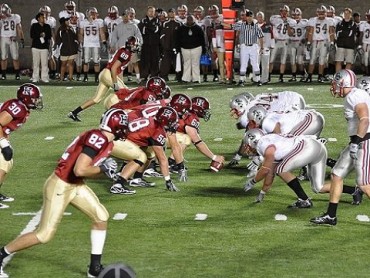
The school board in Madison, Wisconsin, wants to do “a comprehensive analysis of the role of athletics” in student academic achievement. This is because the district is pondering adding sports teams to its middle schools.
“It’s something that has not been looked at in depth before,” the board said.
Really? Is that true?
Board member Michael Flores wanted an additional $250,000 to add sports programs at the 6-8 grade level. This is out of over a half billion dollar total budget.
“I see athletics as an opportunity for kids to stay in school,” Flores said.
A former wrestling coach, Flores noted data that indicates student athletes have higher GPAs and better classroom/school behavior.
But the board rejected the idea, at least for this coming school year, citing the need for further study.
Among areas members said they would like to look at are: how sports are organized and paid for; the role of booster clubs; fees for sports programs and level of accessibility for all students, including special education students.
“Is it that students who perform in athletics do so much better in classes, or that good students like athletics?” [Board president James] Howard asked.
Some of the access issues are tied to economics beyond the control of the school district, he said. For example, students whose families can afford to pay fees for private sport “club” teams develop high skill levels.
“Kids without that access can’t compete, I’ll tell you that,” Howard said.
So he would like to get a sense of whether participation in recreational sports also is linked to students doing better in the classroom, he said.
If kids “without that access can’t compete,” Mr. Howard, maybe establishing the program Mr. Flores wants will alleviate some of that discrepancy. Do you think $250 thousand (out of, again, half a billion) is worth that?
The Madison board has but to get on Google to see if participation in athletics benefits (academic) achievement. Here’s a study from last year via The International Journal of the History of Sport which finds “having ‘dual careers’ provides motivation for training and preparation, stimulating athletes intellectually and relieving stress.”
“‘Their weeks are very pressurised, so top sportspeople are extremely organised, disciplined and efficient with their time, which are useful skills in the academic side of their lives,’ says Stephen Baddeley, director of sport at the University of Bath.”
This study, dealing with Ohio high schools, found that “… schools that devote more energy to athletic success also tend to produce more academic success.”
Anecdotally, I, and many of my teaching/coaching colleagues easily would concur with the above studies. Student participation in sports has resulted in better discipline (in academics and behavior), not to mention a generally overall improved personal attitude.
Being that the school board is Madison’s, after all, who knows — maybe the terms “competitive” and “competition” turned its members off. If so, they should keep in mind that (competitive) sports require an enormous amount of cooperation. You can’t have a team without it. Football, basketball, baseball, volleyball … you name it.
The only thing that should prevent Madison from implementing a middle school sports program is the cost — and based on the figures noted above, that doesn’t appear to be an issue. If the board is going to do that “comprehensive analysis,” hopefully it won’t cost much.
(NOTE: This article has been amended to indicate the district’s total budget is a bit more than half a billion dollars, not trillion as originally reported.)
h/t to Vicki McKenna.
Like The College Fix on Facebook / Follow us on Twitter






Please join the conversation about our stories on Facebook, Twitter, Instagram, Reddit, MeWe, Rumble, Gab, Minds and Gettr.